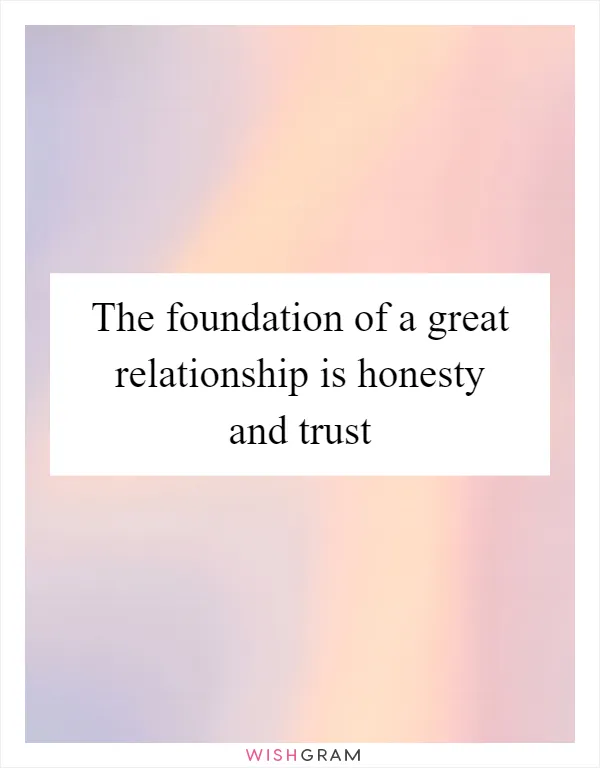The foundation of a great relationship is honesty and trust
In any relationship, whether it's with a partner, friend, or family member, honesty and trust form the bedrock upon which a strong and lasting connection is built. These two fundamental pillars are essential for fostering a healthy and meaningful bond with someone. When honesty and trust are present, it creates an environment where both parties feel safe, respected, and valued.
Honesty is about being truthful and transparent in our words and actions. It means expressing our thoughts, feelings, and intentions openly and sincerely, without deceit or manipulation. When we are honest with others, we show them that we respect their right to know the truth and that we trust them enough to share it. Honesty also involves admitting our mistakes and taking responsibility for our actions, which helps to build credibility and integrity within the relationship.
Trust, on the other hand, is the belief that someone is reliable, dependable, and has our best interests at heart. It is the confidence we have in another person's character, abilities, and intentions. Trust is earned over time through consistent honesty, reliability, and follow-through on commitments. When trust exists, it creates a sense of security and emotional safety within the relationship, allowing both individuals to be vulnerable and authentic with each other.
Without honesty, relationships can become riddled with secrets, half-truths, and misunderstandings. Dishonesty erodes trust and can lead to feelings of betrayal, resentment, and distance between individuals. On the other hand, when honesty is present, it fosters open communication, deepens understanding, and strengthens the bond between two people.
Similarly, without trust, relationships can become strained and fragile. Doubt and suspicion can creep in, causing individuals to question each other's motives and intentions. This lack of trust can create a toxic atmosphere of insecurity and anxiety. However, when trust is established, it allows individuals to rely on each other, feel supported, and have confidence in the relationship's stability.
Building honesty and trust requires effort and commitment from both parties involved. It involves active listening, empathy, and understanding. It means being willing to communicate openly and honestly, even when it's uncomfortable or difficult. It also means being reliable, keeping promises, and demonstrating consistency in our actions.
Inevitably, there may be times when honesty is challenging or trust is tested. However, it is during these moments that the strength of a relationship is truly revealed. By facing these challenges head-on, addressing concerns, and working through conflicts with honesty and trust,
